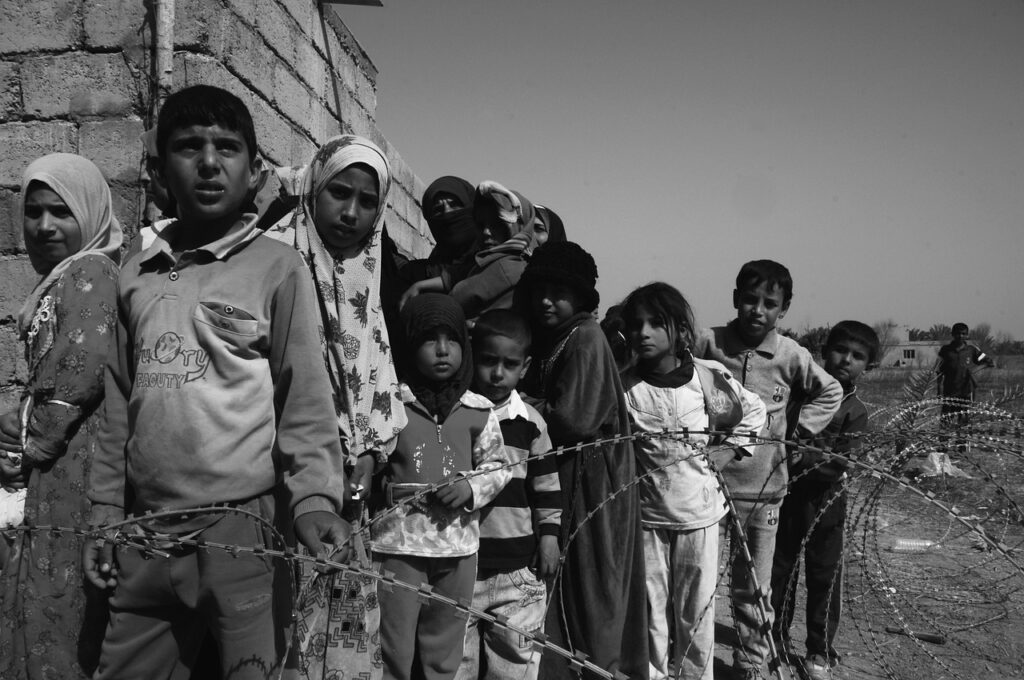
We’re experiencing a period of conflict around the globe more intense than any we’ve seen in recent years. One reason for this? Climate change, which is now recognized as a threat multiplier to international peace and security. When people are under the stress of environmental degradation caused by the climate crisis, violent conflict becomes much more likely. Nearly every geopolitical crisis on earth is now marked in one way or another by environmental strife. Of the 25 countries deemed most vulnerable to climate change, 14 are mired in conflict.
A recent open letter from a group of human rights and environmental organizations to the International Criminal Court recommends prosecuting what are called “Environmental Atrocity Crimes”, meaning cases of war crimes or crimes against humanity that are committed by means of unlawful forced eviction, resource exploitation, or destruction of the natural environment. As war crimes, this may include, for example, cases of indiscriminate bombing or excessive harm to the natural environment.
Warfare has devastated ecosystems, cut off access to vital resources and left behind toxic legacies that severely impact the health of civilian populations.
At the same time, drought, flooding and extreme weather are driving and amplifying violent conflict around the world.
The natural environment is often brutally damaged by warfare. War contaminates soil and water sources, releases pollutants into the air and harms wildlife. And once land becomes untenable due to conflict, populations become displaced, and the mass movement of refugees has huge effects on the environment.
On top of that, the world’s biggest consumers of fuel are the militaries, accounting for 5.5% of global greenhouse gas emissions. The US Department of Defense is the single largest institutional fossil fuel user in the world. Since 2001, the military has been responsible for almost 80 percent of federal energy consumption.
As the climate crisis intensifies in the coming years and decades, more and more people will be forced to leave their homes, as a result of everything from desertification to rising sea levels.
Communities that are on the front lines of the climate emergency are going to need more support to better adapt and prepare for the unavoidable surge in extreme weather events. The pre-conditions for conflict and violence are already in place, both impacted by the climate crisis and also contributing to it.
Sources:
United Nation Climate Change
https://unfccc.int/blog/conflict-and-climate
Open Letter to the International Criminal Court
https://s3.documentcloud.org/documents/24084944/climate_counsel_sudan_hr_hub_open_letter_to_icc_prosecutor_261023.pdf
International Committee of the Red Cross
https://www.icrc.org/en/document/climate-change-and-conflict